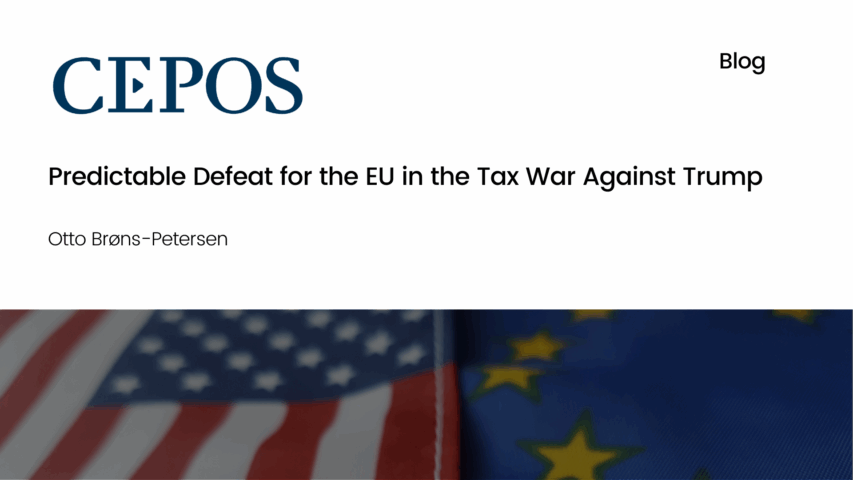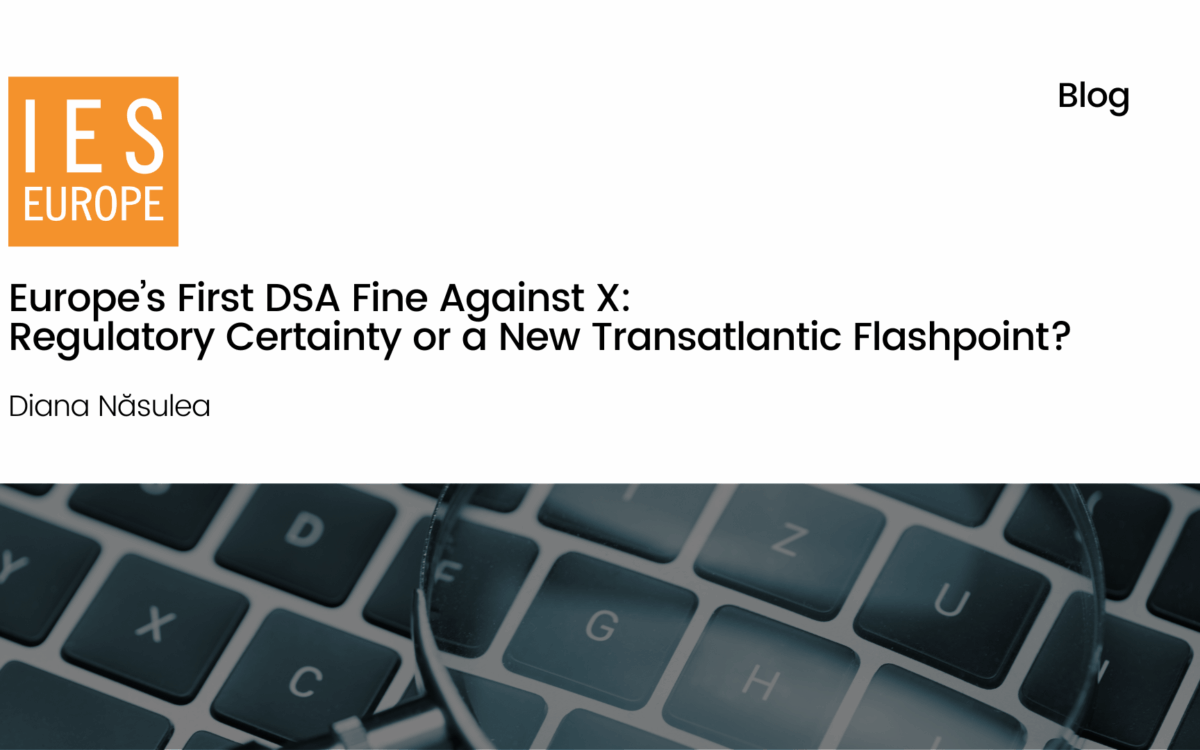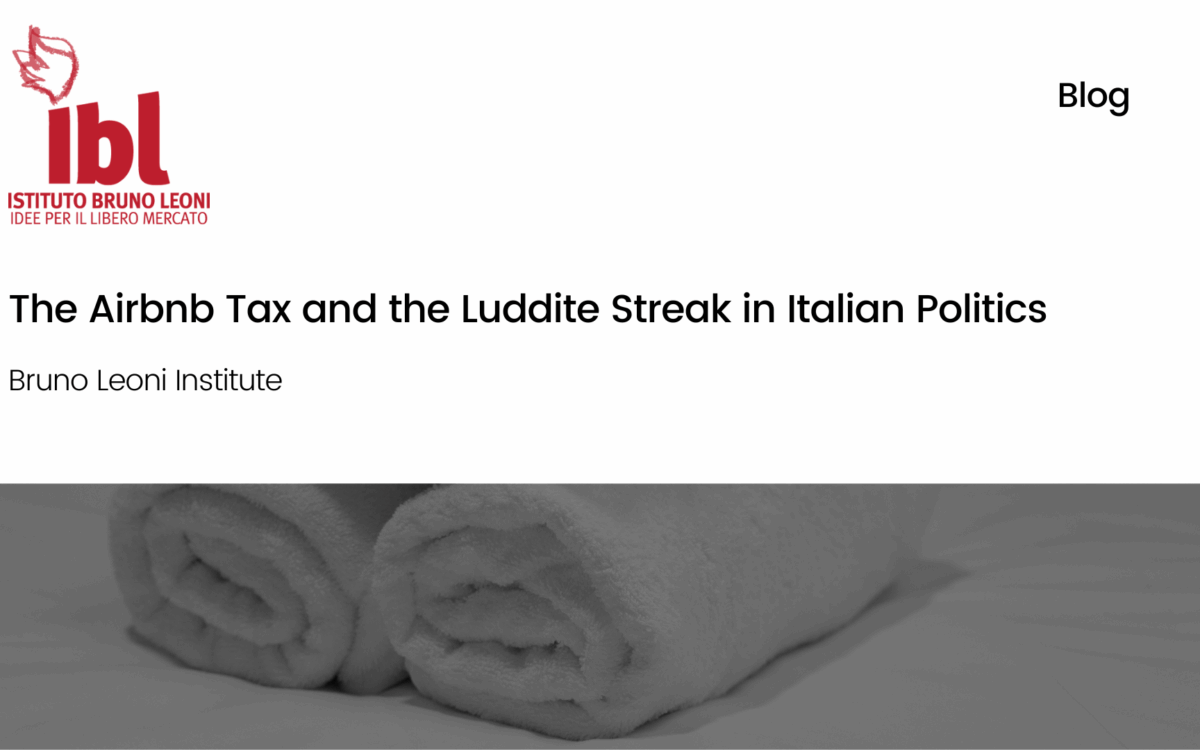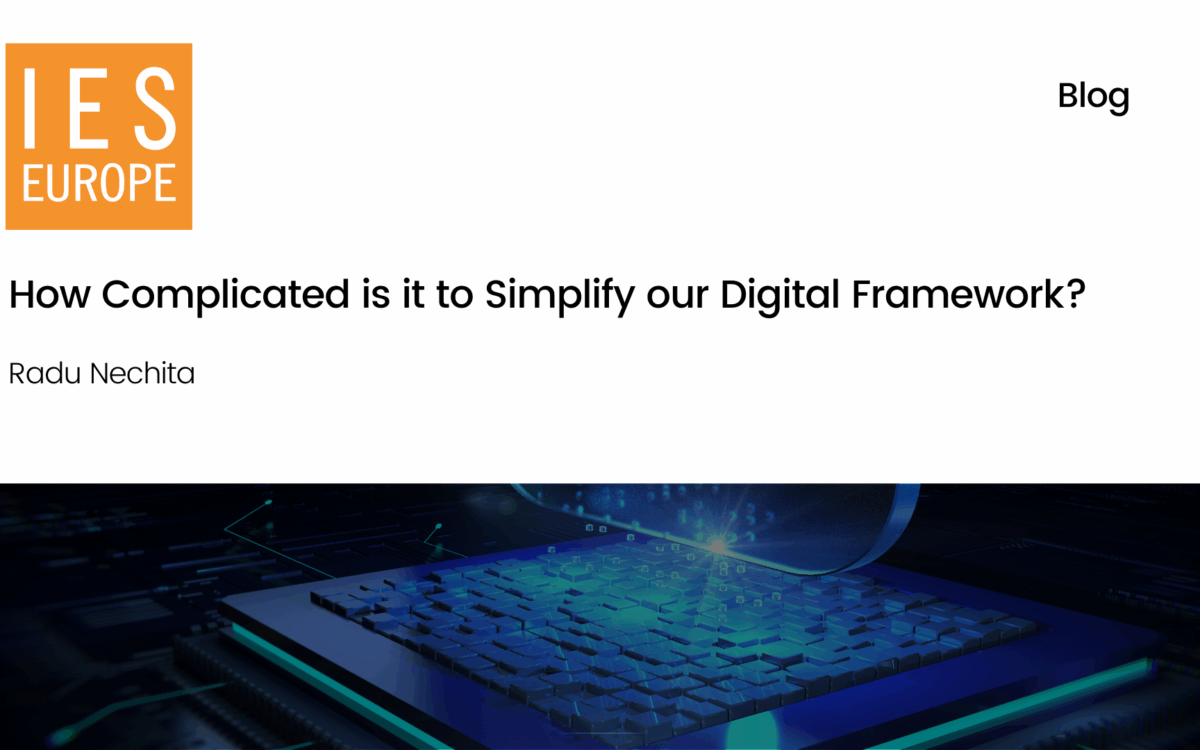Predictable Defeat for the EU in the Tax War Against Trump

Predictable Defeat for the EU in the Tax War Against Trump
Otto Brøns-Petersen // 03 September 2025
The tax war between the US and the EU appears to be over. It was triggered by the EU’s minimum tax on, among other things, foreign subsidiaries whose parent companies do not pay at least 15% tax on their accounting profits. This affected American companies, some of which have subsidiaries in Denmark and other locations. In response, the American tax reform, the One Big Beautiful Bill, included a penalty tax on companies from countries with minimum tax rates. This includes Denmark, which has long transposed the EU directive into law. However, at the recent G7 meeting, President Trump secured a European commitment that the US will de facto be exempt from the minimum tax, contrary to the criteria of the directive.
It is likely that the European Commission will issue an assessment that US taxation, despite the obvious discrepancy, is parallel to European taxation. This will spare the Danish Minister of Taxation from having to impose potentially enormous penalty taxes on American subsidiaries in Denmark. It will also prevent the US from imposing penalty taxes on Danish subsidiaries and individuals in the US, and subsequently, will avert the serious consequences this would have for mutual investment incentives across the Atlantic.
However, things are still not alright. The resolution to the conflict leaves the EU in an uncomfortable, self-created stranglehold.
The minimum tax was actually proposed by a cartel of countries to collect more corporate tax than they could on their own. Just as a business cartel can charge higher prices, a tax cartel can demand higher taxes if taxpayers have nowhere else to go. Nevertheless, it is not advisable to be bound by a cartel agreement to charge high prices if someone outside the cartel can expose it to competition. This is the predicament the European tax cartel now finds itself in, where the US can offer more attractive tax conditions, but EU countries are stuck with the agreement.
At a time when Europeans are already envious of higher US growth rates, this is unfortunate, to say the least.
The EU should therefore abolish the directive altogether. It was implemented hastily and without sufficient consideration. Fundamentally, corporate tax is a bad tax that primarily affects wage earners and reduces productivity and wages. It hinders the investments that EU heads of government are eager to attract. To make matters worse, it can be particularly challenging for small, peripheral countries.
Therefore, a country such as Denmark has a particular interest in avoiding a corporate tax cartel. Fortunately, Denmark will hold the presidency of the EU Council for the next six months, and the EU should work to remove the directive entirely so that it can dismantle the stranglehold it is under.
This blog post was first published by CEPOS in Danish.
Otto Brøns-Petersen is a Head of Analysis at CEPOS
EPICENTER publications and contributions from our member think tanks are designed to promote the discussion of economic issues and the role of markets in solving economic and social problems. As with all EPICENTER publications, the views expressed here are those of the author and not EPICENTER or its member think tanks (which have no corporate view).



